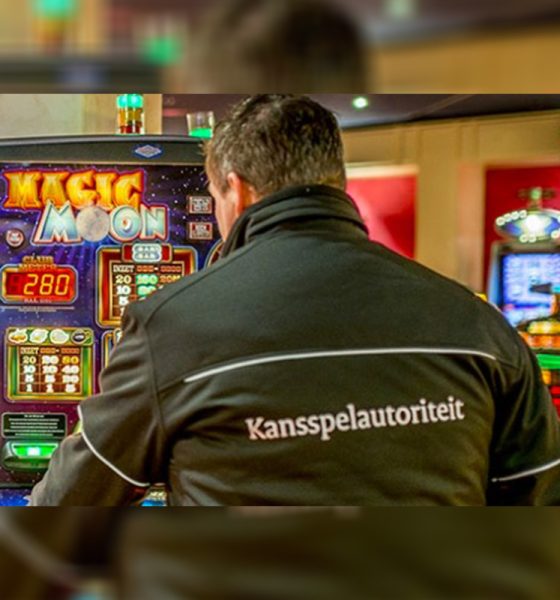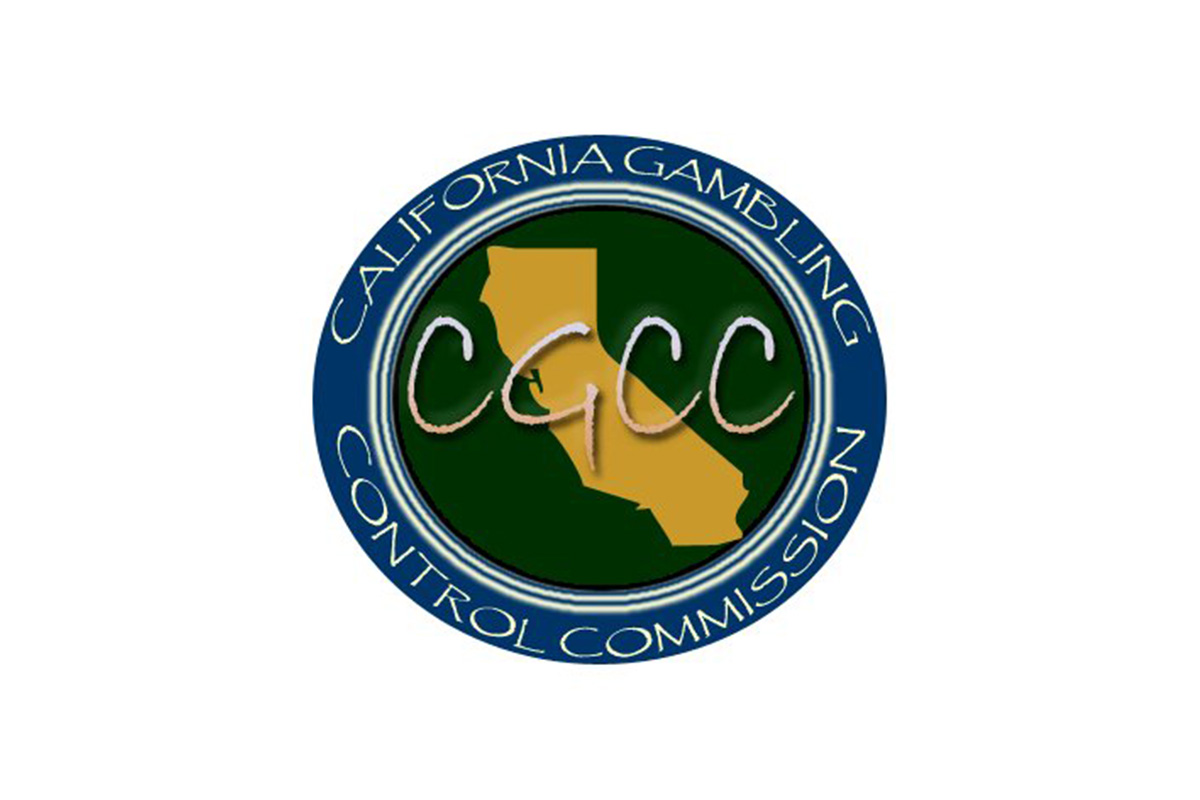

Compliance Updates
Dutch Gaming Authority Once Again Supports Information Projects on Gambling Risks
The Dutch Gaming Authority (KSA) is once again financing four information projects on the risks of gambling, from the Addiction Prevention Fund (VPF). This involves a continuation of the e-learning gambling problem, the development of additional materials on gambling within the Helder op School programme, information for football players via the VVCS and explanations about gambling on Steffie.nl.
The money for these projects comes from the VPF, which was established in 2021 and is financed by an additional gambling levy on providers of risky games of chance. The Gaming Authority manages this fund and works with various partners in the field of gambling addiction prevention on the spending of the resources. The VPF has multiple spending objectives, including information about the risks of gambling.
E-learning early detection of gambling problems
Jellinek has developed a digital training offer for professionals together with GGZ Ecademy to inform them about addiction problems in online gambling. This includes first-line professionals such as doctors, POH GGZ, psychologists and debt counselors. This way they can better and earlier identify a gambling addiction. This e-learning module was launched during a well-attended webinar. The newly provided funding will further increase the name recognition of the module.
Clear at school: gambling
Helder op school is a prevention programme of the Trimbos Institute that supports schools in promoting a healthy lifestyle and preventing risky behaviour among pupils and students on themes such as alcohol, tobacco and drugs. Previously, the Trimbos Institute developed materials to improve the signaling of and guidance for risky or problematic gambling behaviour among MBO students. This project is now being extended and expanded with, among other things, scripts for parent evenings on this theme and teaching materials to discourage gambling.
Prevention and information for football players via VVCS
The Association of Contract Players (VVCS) visits the player groups of all Ere- and Eerste Divisie clubs, including the U-21 and U-19 selections, to provide information about problematic gambling behaviour. A flyer with information about the Gambling Stop is now being added to the existing information offer of VVCS and Gamban software, which can block gambling sites. VVCS also starts training ex-players with addiction problems to become experts by experience. They will then be deployed to provide information during selection visits.
Explanation about gambling on Steffie.nl (delivery: autumn 2025)
Steffie.nl explains all kinds of subjects in understandable language. This makes it an important platform for people with low literacy and people with a mild intellectual disability. Commissioned by the Ksa, the Stichting Leer Zelf Online is working on four modules on the subject of gambling, namely “What is gambling?”, “Addicted to gambling”, “Self-test gambling” and “Recognizing gambling games”. These modules can then be found on Steffie.nl.
KSA underlines the importance of targeted information about the risks of gambling for different target groups through these four projects. On the one hand, the KSA wants to make young people and young adults aware of these risks and on the other hand, enable healthcare professionals, but also footballers, to do more with this subject because of the exemplary role they fulfill for many people.
The post Dutch Gaming Authority Once Again Supports Information Projects on Gambling Risks appeared first on European Gaming Industry News.
Compliance Updates
Ukraine’s PlayCity Begins Issuing Licenses to Gambling Operators

The Cabinet of Ministers of Ukraine has adopted a resolution on licensing conditions in the gambling sector, which allows the state agency PlayCity to begin issuing licenses to gambling organisers and confirming previously issued ones.
“As a result, this will generate almost UAH 50 million (1.028.956,00 Euro) in additional revenues to the state budget from license fees in the near future,” PlayCity reported on Telegram.
It is noted that to obtain a license, impeccable business reputation, lack of ties with the aggressor state and implementation of all necessary mechanisms for responsible gaming are required.
PlayCity clarified that such requirements apply to both those who are only applying for a license and current licensees. Current licensees have two months to submit documents to PlayCity on compliance with the requirements.
The message emphasises that if the requirements are not met, sanctions in the form of fines or termination of the license may be applied to the organisers of gambling.
“The state will direct additional budget revenues to strengthen defense capabilities, in particular, to purchase drones for the Defense Forces,” PlayCity added.
The post Ukraine’s PlayCity Begins Issuing Licenses to Gambling Operators appeared first on European Gaming Industry News.
Compliance Updates
Football Season Kicks Off: Arizona Department of Gaming Warns of Gambling Scams and Highlights Consumer Protection Tools

September is Responsible Gaming Education Month, and the Department is reminding fans to play it safe with tools like Check Your Bet, self-exclusion, and the 1-800-NEXT-STEP helpline.
With the football season underway, the Arizona Department of Gaming (“the Department”) is warning Arizonans about the growing risks of unlicensed online casinos and sportsbooks. September also marks Responsible Gaming Education Month, making this an important time to remind fans that if you choose to play, play it safe by choosing a regulated operator.
Regulated gaming offers important consumer protections, helping ensure fair play, data security, accountability, and a safer overall experience. The Department has seen an increase in consumer complaints about unlicensed gambling operations in recent months, a trend expected to intensify as football season kicks off and the busiest event wagering period of the year begins. Common issues include unfair or misleading terms, difficulty withdrawing winnings, and accounts being frozen without explanation, often after a withdrawal request.
“Responsible Gaming Education Month is the perfect time to remind Arizonans that while legal, regulated gaming options are available to all Arizonans ages 21+, there are also deceptive operators eager to take advantage of fans during football season,” said Jackie Johnson, Director of the Arizona Department of Gaming. “Unregulated platforms lack responsible gaming safeguards, age verification, and offer no consumer protections, which puts Arizonans at risk. That’s why the Department is promoting resources to give every Arizonan the tools they need to make informed choices and play responsibly.”
To help protect Arizonans, the Department has launched a new Responsible Gaming website and is spotlighting three key resources this month:
- Check Your Bet– If you choose to participate in gaming, opting for legal, regulated operators is the best way to protect yourself. Playing responsibly means knowing your operator is licensed and that you meet Arizona’s legal gaming age of 21+. This online resource helps Arizonans confirm they’re using a legal site, which helps protect against fraud, identity theft, and other risks.
- Self-Exclusion Program– A free, confidential program that allows people to voluntarily limit their access to Arizona’s regulated gaming. The statewide self-exclusion program was established in 2004 for casinos and expanded in 2021 to include retail sportsbooks, event wagering platforms, and fantasy sports platforms. More than 550 Arizonans enrolled in the last fiscal year, and over 11,000 have chosen this option since the program began.
- 1-800-NEXT-STEP – A confidential, 24/7 helpline for anyone seeking support right now, whether for themselves or someone they care about. The helpline connects Arizonans with caring professionals who can provide immediate assistance, low and no-cost treatment referrals, and financial counseling.
These resources, along with more tips and tools, are available at the Department’s new webpage: gaming.az.gov/ResponsibleGaming.
Top 5 Signs of an Unlicensed Gambling Site
The Department urges Arizonans to be cautious and watch for these warning signs that a site or app may be fraudulent or unlicensed:
- No Responsible Gaming Protections – Licensed operators are required to provide responsible gaming tools, including age verification to ensure no one under the age of 21 can play, deposit limits, time limits, self-exclusion options, and access to the 1-800-NEXT-STEP helpline. If you don’t see these tools, it’s a red flag.
- Too-Good-to-Be-True Offers – Promises of “guaranteed wins,” oversized bonuses, or “risk-free” bets are common scam tactics.
- Trouble Getting Paid and No Dispute Resolution – Unregulated sites often delay or deny withdrawals, with little to no process for resolving disputes.
- Unusual Payment Methods – Sites that only accept cryptocurrency, wire transfers, or gift cards instead of secure, standard payment options are a major warning sign.
- Copycat Branding or Poor Site Quality – Some fraudulent sites impersonate legitimate Arizona casinos or sportsbooks, using misspellings, broken links, or look-alike names to trick players into downloading their app or visiting their site.
“Licensed operators in Arizona are required to provide responsible gaming safeguards. When people play on unregulated sites, those protections are missing and people are more vulnerable,” said Elise Mikkelson, Director of the Division of Problem Gambling. “That’s why Arizona’s helpline exists: to ensure every Arizonan has access to the support they need. With more than 11,000 Arizonans choosing to enroll in the state’s self-exclusion program since it began, it’s clear that no one is alone in taking steps to protect themselves. And if you or someone you know is struggling, help is always available.”
How to Report Suspicious Gambling Activity, Fraud, or Identity Theft:
Arizonans who believe they may have encountered an unlicensed or suspicious gambling site are encouraged to report it directly to the Arizona Department of Gaming. Reports help the Department investigate and take action to protect consumers statewide. If you find a website, app, or business that claims to offer legal gaming in Arizona but does not appear to be licensed or authorized by the Department, follow these steps:
- Document the website URL, app, business name, and any promotional materialsassociated with the platform or operator.
- Report itto ADG at [email protected] and the Arizona Attorney General’s Office Consumer Information and Complaints Unit at (602) 542-5763 or by visiting azag.gov/consumer.
- Cease activity on the platform and monitor financial accounts for unauthorized transactions.
- If you suspect identity theft, report it to the Federal Trade Commission (“FTC”): for help in English, go to IdentityTheft.gov, and for help in Spanish, go to RobodeIdentidad.gov.
The Department takes complaints about all illegal gambling seriously. Reports can be made anonymously.
The post Football Season Kicks Off: Arizona Department of Gaming Warns of Gambling Scams and Highlights Consumer Protection Tools appeared first on Gaming and Gambling Industry in the Americas.
California
California Gambling Control Commission Issues New Precedential Decision on Licensing Requirements

The California Gambling Control Commission has issued a new Precedential Decision that addresses licensure requirements for funding sources of Third-Party Providers of Proposition Player Services (TPPPS).
The decision, formally titled Precedential Decision 2025-01, was adopted on August 21, 2025, and is now available on the Commission’s Precedential Decisions page
along with all prior precedential rulings.
This latest decision provides further clarity on licensing obligations and regulatory expectations for individuals and entities involved in funding TPPPS operations—a key aspect of maintaining integrity and oversight in California’s regulated gambling industry.
Stakeholders and members of the public can stay informed by subscribing to receive notifications when new Precedential Decisions are under consideration or adopted. The Precedential Decisions Subscription Signup Form, along with other subscription options for Commission meeting agendas, newsletters, and rulemaking updates, is available on the Commission’s website.
For questions or additional information, contact the Commission at (916) 263-0700 or via email at [email protected]
.
The post California Gambling Control Commission Issues New Precedential Decision on Licensing Requirements appeared first on Gaming and Gambling Industry in the Americas.
-

 gaming3 years ago
gaming3 years agoODIN by 4Players: Immersive, state-of-the-art in-game audio launches into the next generation of gaming
-
EEG iGaming Directory9 years ago
iSoftBet continues to grow with new release Forest Mania
-
News8 years ago
Softbroke collaborates with Asia Live Tech for the expansion of the service line in the igaming market
-
News7 years ago
Super Bowl LIII: NFL Fans Can Bet on the #1 Sportsbook Review Site Betting-Super-Bowl.com, Providing Free Unbiased and Trusted News, Picks and Predictions
-
iGaming Industry8 years ago
Rick Meitzler appointed to the Indian Gaming Magazine Advisory Board for 2018
-
News7 years ago
REVEALED: Top eSports players set to earn $3.2 million in 2019
-
iGaming Industry8 years ago
French Senator raises Loot Boxes to France’s Gambling Regulator
-
News7 years ago
Exclusive Interview with Miklos Handa (Founder of the email marketing solutions, “MailMike.net”), speaker at Vienna International Gaming Expo 2018













